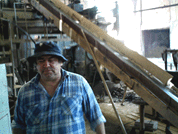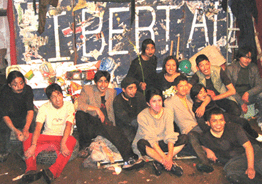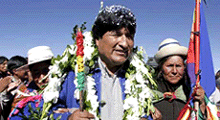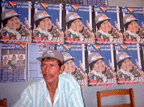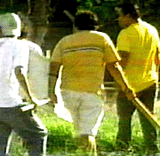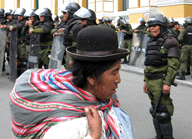Silvestre Saisari, a bearded, soft-spoken leader in the Bolivian Landless Workers' Movement (MST), sat in his office in Santa Cruz, Bolivia. The building was surrounded by a high cement wall topped with barbed wire. It looked like a military bunker. This made sense given the treatment Saisairi and other like-minded social and labor organizers received from the city's right wing elite. In 2005, the young MST leader was attacked while giving a press conference on landowners' use of armed thugs to suppress landless farmers. To prevent him from denouncing these acts to the media, people reportedly tied to landowners pulled his hair, strangled, punched, and beat him.(1) Sitting in his well-protected headquarters, Saisari explained, "Land is a center of power. He who has land, has power
.we are proposing than this land be redistributed, so their [elites] power will be affected."(2)
